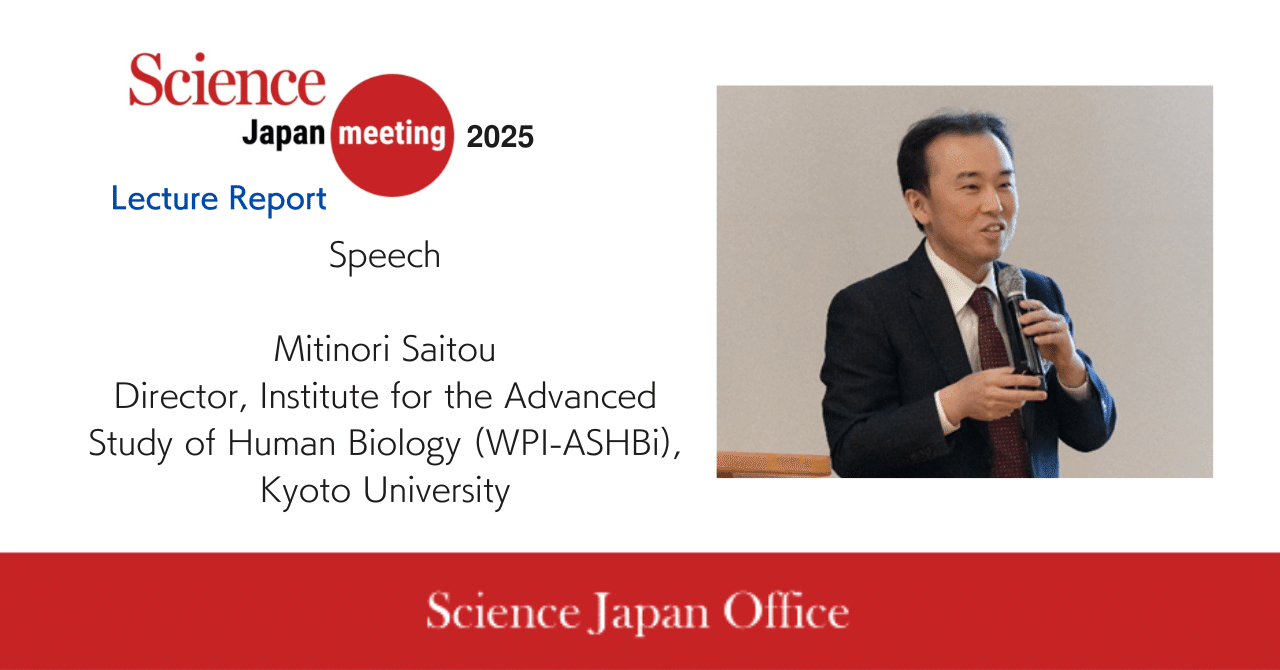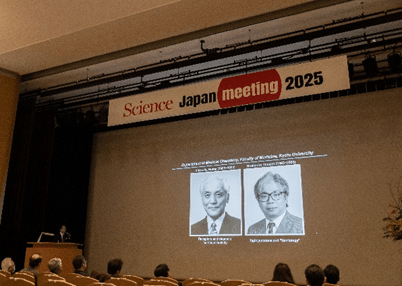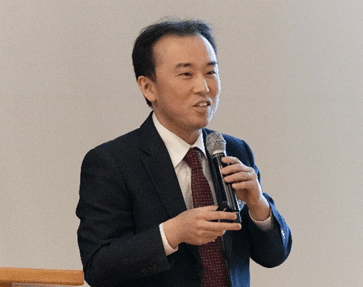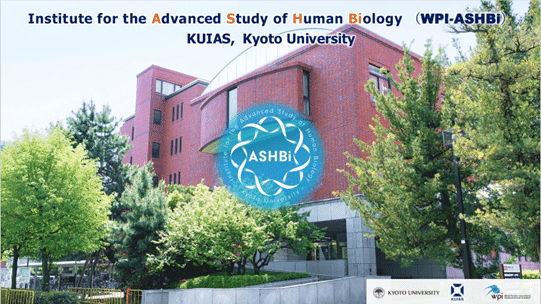
■ Speech:
Title: Ever-Present Challenges of the Research World
Speaker: Mitinori Saitou
Director, Institute for the Advanced Study of Human Biology (WPI-ASHBi), Kyoto University
Mitinori Saitou, Director of the Institute for the Advanced Study of Human Biology (WPI-ASHBi) at Kyoto University, addressed the ongoing challenges in the research world during his speech. He began by acknowledging concerns about the perceived decline in Japanese science and offered his personal insights as a life scientist trained at Kyoto University. Saitou reflected on the university’s rich history of scientific excellence, highlighting influential figures such as Professor Osamu Hayaishi, known for his groundbreaking work on oxygenase enzymes, and his notable students, including Nobel laureate Tasuku Honjo.

Saitou emphasized the importance of originality in scientific research, a principle instilled in him by his mentor, Professor Shoichiro Tsukita. Tsukita believed that structure underpins function and that foundational knowledge is key to innovation. Saitou shared his fascination with germ cells, which transmit genetic and epigenetic information of the organisms across generations. His research has focused on understanding the mechanisms underlying germ cell development and has used mouse models to demonstrate the potential of induced pluripotent stem cells (iPSCs) to differentiate into germ cells and then into healthy offspring.

He described the importance of originality, interdisciplinary collaboration, and ethical considerations in advancing the field of human biology. He also highlighted the role of WPI-ASHBi in fostering international and interdisciplinary research, with a focus on understanding the key biological traits that define humanity and addressing ethical issues in human biology research.

KUIAS, Kyoto University
Saitou further discussed advancements in human in vitro gametogenesis, highlighting potential applications in reproductive biology and infertility treatment. He acknowledged the ethical considerations surrounding the use of in vitro germ cells for reproduction and emphasized the importance of ensuring their safety and quality through rigorous scientific assessment. Saitou advocated for interdisciplinary dialogue between scientists and philosophers to develop a framework that assigns positive values to offspring generated from in vitro cells should society deem their use acceptable.
Lastly, Saitou highlighted the achievements of Japanese scientists and noted the groundbreaking research coming from the country despite reduced funding. He called for increased investment in early-stage research to maintain Japan’s scientific competitiveness and stressed the need to balance support for interdisciplinary collaboration with preserving the strengths of Japanese science, such as diligence and innovation.
To conclude, Saitou underscored the need to raise salaries for young faculty members and improve administrative support for international collaborations. He expressed optimism about the future of science and encouraged scientists to maintain high spirits in their scientific pursuits.
コメントを残す